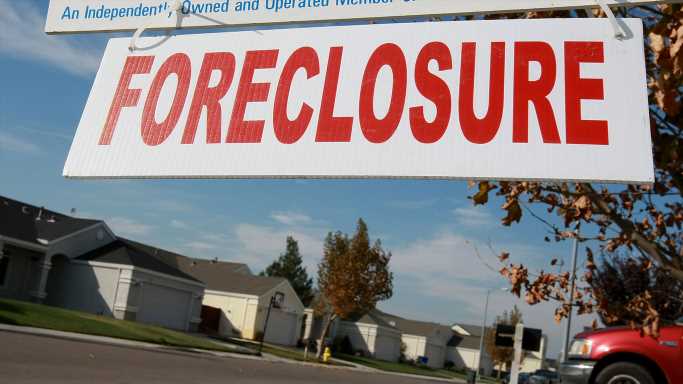Foreclosures Surge In America’s Poor Cities
Foreclosures are supposed to be a thing of the past. Tens of thousands of homes fell into foreclosure during the 2008/2009 housing crisis. It took years for home prices to bounce back. Prices recovered aggressively enough that they rose to records two years ago. Then came 6% mortgage rates, and some homeowners were in trouble again. The recent foreclosure spike is particularly acute in several cities, almost all of which are poor.
Real estate research firm recently released its July 2023 U.S. Foreclosure Market Report. A total of 31,877 homes had foreclosed filings (default notices, scheduled auctions or bank repossessions). That is one of every 4,830 housing units in the U.S.
ATTOM also looks at cities. This yardstick includes the numbers for metro areas with populations of over 200,000. In July, the city hit the hardest by foreclosures was Fayetteville, NC, where one in every 1,367 housing units had a foreclosure filing. It was followed by Atlantic City, NJ, with one in every 1,708 housing units; then Columbia, SC, with one in every 1,747 housing units; Trenton, NJ, with one in every 1,870 housing units; and Cleveland, OH, with one in every 1,957 housing units. (These are 30 American cities with the most foreclosures.)
Fayetteville, a city with a population of 208,873 people, comprises 41% white and 42% black residents. The median annual household income stands at $48,923, nearly $20,000 lower than the average across the nation. The poverty rate exceeds the national average of 11.6%, reaching 19.1%.
Get Our Free Investment Newsletter
Atlantic City’s demographic makeup presents an even grimmer picture compared to Fayetteville. With a smaller populace of 38,561, the city comprises 21% white, 33% black, and 32% Hispanic residents. Remarkably low, the median household income stands at $29,733. The city also holds one of the nation’s highest poverty rates at 37%.
Foreclosure rates in these cities and others of America’s poorest cities will always be higher than the national average. When the cost of food, transportation, and energy are taken into account, many of the residents simply do not have money left over for housing. (These are America’s 25 least affordable housing markets.)
Sponsored: Tips for Investing
A financial advisor can help you understand the advantages and disadvantages of investment properties. Finding a qualified financial advisor doesn’t have to be hard. SmartAsset’s free tool matches you with up to three financial advisors who serve your area, and you can interview your advisor matches at no cost to decide which one is right for you. If you’re ready to find an advisor who can help you achieve your financial goals, get started now.
Investing in real estate can diversify your portfolio. But expanding your horizons may add additional costs. If you’re an investor looking to minimize expenses, consider checking out online brokerages. They often offer low investment fees, helping you maximize your profit.
Source: Read Full Article

